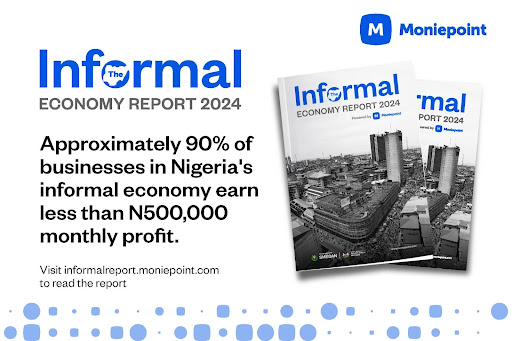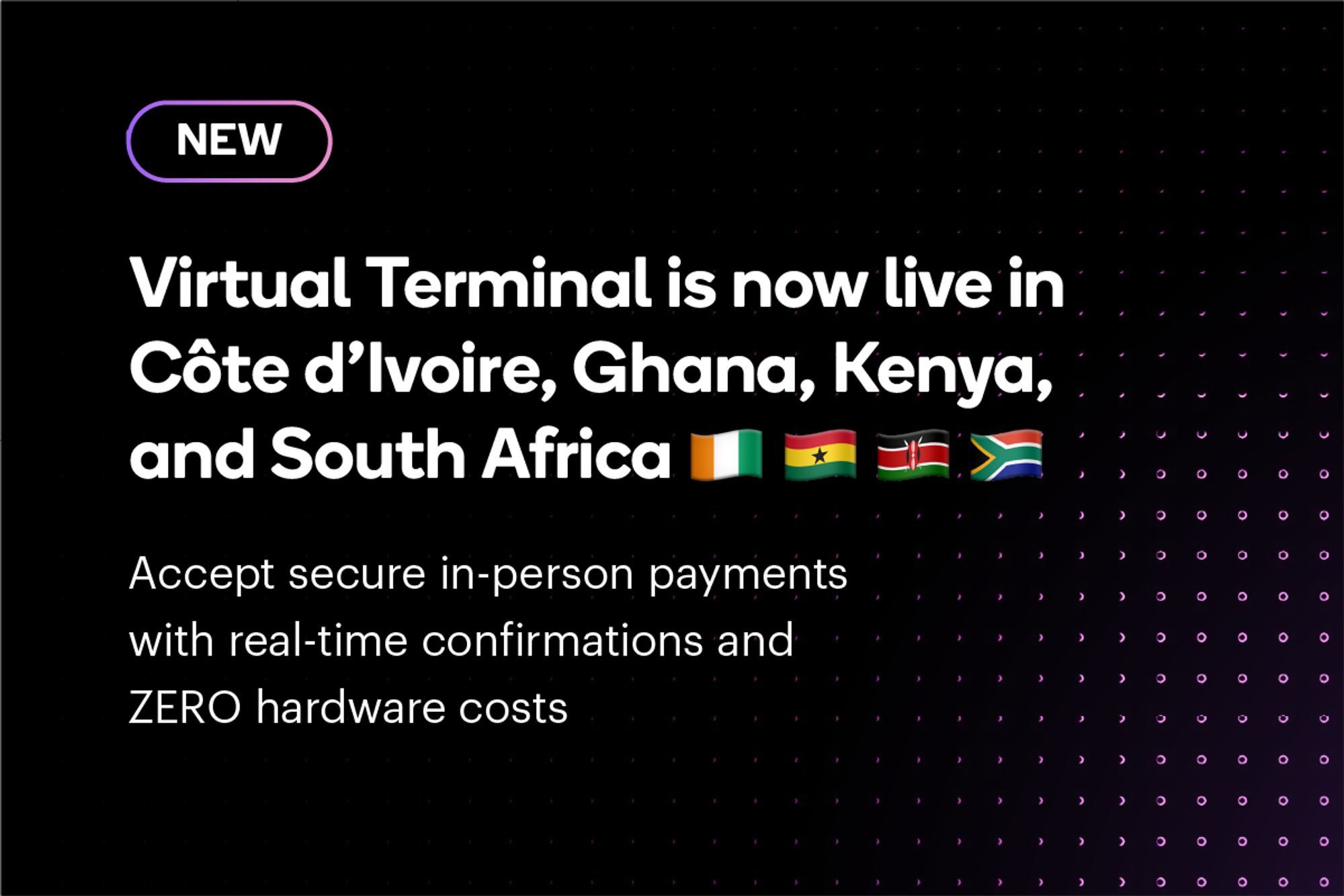

Happy pre-Friday ☀️
The One Ring is no longer just fiction, it’s now closer reality.
Yesterday, Samsung launched it’s newest wearable technology, the Samsung Ring. The Galaxy Ring tracks your health—sleep, heart rate, activity—and boasts a sleek design with a cool charging case. Plus, it integrates with Samsung phones for features like camera control and lost ring tracking, at least if you have a Galaxy phone. You can’t receive notifications on the ring, but at least it’ll let you know when you’re doing big back activities.

At $400, it’s a pricey ring, but the lack of a subscription fee sweetens the deal. The bigger question is why we need to turn every accessory into wearable tech. First watches, and now rings. What’s next? And why?
Local cloud service provider hit with ransomware attack
Two weeks ago, Nigeria’s ID authority, the National Identity Management Commission confirmed five websites that were illegally selling the private information of Nigerians for as low as ₦190 ($0.12). In fact, one human rights group, as part of its investigation, reportedly purchased the NIN slip of digital economy minister Bosun Tijani for ₦100 ($0.064).
At the time, an ethical hacker who spoke to TechCabal said, “It is either the NIMC is doing a poor job at data protection by using a cloud storage to store data or an insider is allowing individuals retrieve data.” While an investigation by Nigeria’s data protection agency fingered abuse of access as the cause of the NIMC breach, it still doesn’t mean cloud services in the country are safe, especially not with the latest news.
The scoop: Nigeria’s cloud computing industry is under attack. Hackers wielding Phobos, a ransomware, have infiltrated at least one local provider, according to a government source with direct knowledge.The Nigerian Computer Emergency Response Team (ngCERT) is on high alert after detecting a surge in Phobos attacks targeting cloud service providers. The ransomware encrypts a victim’s data, essentially holding it hostage until a ransom is paid.
Why it matters: This is a big blow to Nigeria’s burgeoning cloud sector. Local providers have been aggressively courting startups and government agencies as cheaper alternatives to tech giants like AWS and Azure—services each agency pays up to $500,000 for. Some providers have even lobbied for government contracts to store sensitive data. A wave of ransomware attacks could shatter trust and stall this critical industry.
How they’re getting in: Hackers are using two main tactics: phishing emails and scans for vulnerable Remote Desktop Protocol (RDP) ports. ngCERT warns these attacks can lead to a domino effect – compromised systems, stolen data, hefty ransom demands, and potential financial losses.
The outlook: ngCERT is actively working with affected organisations to mitigate the damage, but the full scope of the outbreak remains unclear.
Read Moniepoint’s 2024 Informal Economy Report

90% of businesses in Nigeria’s informal economy earn less than N500,000 in monthly profit. Click here to explore the financial profile of Nigeria’s informal economy from Moniepoint’s latest report.
Access Bank to raise $233 million
“When you are the largest bank in Nigeria and one of the largest banks in Africa, where do you go from here?”
This is a question Aigboje Aig-Imoukhuede, Access Holdings Plc Chairman, asked in his presentation on Tuesday. And Aig-Imoukhuede isn’t wrong. The bank, with over 60 million customers across three continents, is giving other commercial banks a run for their money—and even swallowing some up in the process. The bank has acquired at least 5 banks since 2022 alone, including BancABC Botswana, and has majority shares the Standard Chartered subsidiaries in Angola, Cameroon, Gambia and Sierra Leone. More recently Access Bank acquired the National Bank of Kenya in a deal thought to be worth $100 million.
Now, Access Bank wants respect! The bank is planning to raise ₦351 billion ($233 million) from existing shareholders to finance its goal of becoming “the world’s most respected African bank.” The company will offer existing shareholders 17.7 billion new shares at ₦19.75 each.
Going global, but not forgetting home: Access isn’t abandoning its Nigerian roots. A chunk of the funds (₦223 billion) will be used to expand its loan portfolio across various business sectors within Nigeria. Access also plans to invest ₦68.62 billion ($37.6 million) in infrastructure, and ₦51.46 billion ($32.9 million) in distribution channels, including new branches in Lagos, Port Harcourt, and Abuja.
Chasing the money trail: “We are chasing the money,” said Access Bank MD/CEO Roosevelt Ogbonna, emphasising their strategic approach to market selection. Their global expansion includes new markets like the US and a trade booking office in Malta. Ogbonna also took a jab at competitors, highlighting Access’ remarkable growth since 2002. “There is no Nigerian bank that was our size in 2002 that is still alive today,” he said.
Can they pull it off? Only time will tell if Access can achieve its lofty goal of becoming a global African banking leader. But with this fresh capital and their proven track record, they’re definitely a force to be reckoned with.
Issue USD and Euro accounts with Fincra

Create and manage USD & Euro accounts from anywhere. Fincra allows you to issue accounts to your users, partners & customers to collect payments without the stress of setting up and operating a local account. Get started today.
$16.5 million has been stolen from South African taxpayers
In more news about cybersecurity, South Africa is facing more than its own fair share of attacks.
Over the past decade, cybercriminals have siphoned a staggering R300 million ($16.5 million) from South Africa’s taxpayer coffers, according to newly appointed Democratic Alliance (DA) public works minister, Dean Macpherson. This revelation sheds light on a persistent and alarming vulnerability in the country’s digital infrastructure.
The theft’s full extent came to light following another brazen R24 million ($1.3 million) attack in May 2024, triggering an investigation involving the Hawks, South African Police Services, State Security Agency, and cybersecurity experts. In a swift response, four officials, including three in senior management, have been suspended, and 30 laptops seized as part of the ongoing probe.
Macpherson didn’t mince words, calling it an “elaborate scheme by cyber-hackers, and potentially officials within the department.”
This accusation raises troubling questions about potential insider involvement and the depth of corruption within government ranks in South Africa.
Additionally, this incident is just the latest in a series of cyber attacks plaguing South Africa. On July 3, 2024, the country’s National Health Laboratory Service (NHLS) fell victim to a ransomware attack, compromising patients’ lab results and throwing healthcare services into disarray. Earlier this year, both the International Trade Administration Commission of South Africa (ITAC) and the Companies and Intellectual Property Commission (CIPC) suffered security breaches, with the latter averting an attempt to pilfer a staggering R1.61 trillion ($88.8 billion) in pensioners’ funds.
The cyber attack isn’t limited to South Africa’s borders. Other African nations like Kenya and Nigeria are grappling with similar challenges, with Nigeria recently reporting ransomware attacks on at least one local cloud service provider just as these providers are clamouring for government patronage (as we’ve written above).
As cyber-attacks surge to an alarming 1,308 per week globally, a pressing question emerges: Are African nations adequately prepared to defend their digital frontiers? The recurring breaches suggest a systemic weakness in cybersecurity infrastructure across the continent.
Paystack Virtual Terminal is now live in more countries

Paystack Virtual Terminalhelps businesses accept secure, in-person payments with real-time WhatsApp confirmations and ZERO hardware costs. Enjoy multiple in-person payment channels, easy end-of-day reconciliation, and more. Learn more on the Paystack blog →
After Zambia, Huawei wants to launch a smart village in Uganda
Africa contributes a rather inconsequential 1.45 billion tonnes (4%) to global carbon emissions, yet the continent remains the most vulnerable to adverse climate change effects due to limited healthcare resources.
The continent faces stark challenges: 600 million Africans lack electricity access, while 3 in 5 rural residents still grapple with unreliable internet. These deficits in fundamental resources severely hamper technological progress, education, and innovation in rural communities.
Enter smart villages: Smart villages are rural communities leveraging technology to improve the quality of life for their residents and create sustainable economic opportunities. Many African countries have tried to develop smart villages as part of their plans to develop rural communities, like Kenya’s Konza City, Nigeria’s Eko Atlantic Hub, Ghana’s HOPE City, Senegal’s Akon City, and Rwanda’s Innovation City.
While projects like Kenya’s Konza City have struggled to materialise in 16 years, a new player is stepping up to the punch.
Huawei, the Chinese tech giant, is set to launch a smart village in Uganda, hot on the heels of its successful Zambian project. The initiative will introduce smart classrooms, learning centres, remote healthcare diagnostics, and smart solar PVs to boost rural electricity access.
Not the first rodeo: This follows Huawei’s recent triumph in Zambia, where the Muchila Smart Village project established 100 smart villages, providing electricity and internet to 4,000 villagers in Namwala district and creating over 5,000 local jobs.
Huawei’s vision: Huawei has made it clear that it wants to “accelerate intelligence in Africa” and build new infrastructure in a market where it has risen as one of the most important telecoms market disruptors in the past decade. As these smart village projects take root, they offer a promising path to bridge Africa’s rural-urban divide, potentially leapfrogging traditional development hurdles.
Move to the Cloud with Serverscore

Migrate your IT infrastructure from AWS, Azure, or Google Cloud to Servercore and get a special bonus: three times the amount of your previous cloud bills in credits to spend on Servercore Cloud. Apply now to test our cloud platform.
- TechCabal – Features Writer, Junior Client Account Manager, Features Director – Africa
- Norebase – Product Marketing Manager – Africa
- EarlyNode – Operations Associate, Technical Writer – Nigeria (Remote)
- Acadium– Digital Marketing Interns – Remote
- Reliance Health – Content Strategist, Telesales Officer – Lagos, Nigeria
- Carry1st – Growth Manager – Lagos, Nigeria
- Paystack – Enterprise Risk Lead, Expansion Marketer (Kenya) – Africa
Here’s what we’ve got our eyes on
Written by: Emmanuel Nwosu
Edited by: Timi Odueso
Want more of TechCabal? Sign up for our insightful newsletters on the business and economy of tech in Africa.
- The Next Wave: futuristic analysis of the business of tech in Africa.
- Entering Tech: tech career insights and opportunities in your inbox every Wednesday at 3 PM WAT.
- TC Scoops: breaking news from TechCabal
P:S If you’re often missing TC Daily in your inbox, check your Promotions folder and move any edition of TC Daily from “Promotions” to your “Main” or “Primary” folder and TC Daily will always come to you.















